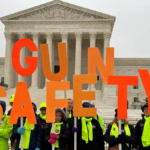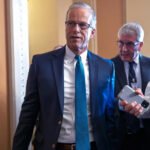Tuesday, January 2, 2024
Year : 1, Issue : 18
Bangladesh is holding general elections on 7 January – the result already looks inevitable. With the main opposition parties boycotting the poll and many of their leaders jailed, the ruling Awami League is all set to be re-elected for a fourth straight parliamentary term.
The biggest of these opposition parties, the Bangladesh Nationalist Party (BNP), and its allies say they have no faith that Prime Minister Sheikh Hasina will hold a free and fair election. They called on her to step down and allow the polls to be held under a neutral interim government – a demand she rejected. So the candidates on the ballot will all be from the Awami League, its allies or independents.
A senior BNP leader Abdul Moyeen Khan told to the BBC, “Democracy is dead in Bangladesh. What we are going to see in January is a fake election”.
He echoes wider concerns that Sheikh Hasina has grown increasingly autocratic over the years. Critics question why the international community is not doing more to hold her administration to account. Her government flatly rejects accusations it is undemocratic.
Law Minister Anisul Huq told the BBC, “Elections are determined by the participation of the people to vote. There are many political parties, apart from the BNP taking part in this election”.
Bangladesh under Ms Hasina presents a contrasting picture. The Muslim-majority nation, once one of the world’s poorest, has achieved credible economic success under her leadership since 2009.
It’s now one of the fastest-growing economies in the region, even surpassing its giant neighbour India. Its per capita income has tripled in the last decade and the World Bank estimates that more than 25 million people have been lifted out of poverty in the last 20 years.
Using the country’s own funds, loans and development assistance, Ms Hasina’s government has undertaken huge infrastructure projects, including the flagship $2.9bn Padma bridge across the Ganges. The bridge alone is expected to increase GDP by 1.23%.
But in the wake of the pandemic, Bangladesh has been struggling with the escalating cost of living. Inflation was around 9.5% in November.
Its foreign exchange reserves have dropped from a record $48bn (£38bn) in August 2021 to around $20bn now – not enough for three months of imports. Its foreign debt has also doubled since 2016.
Critics say economic success has come at the cost of democracy and human rights, and allege that Ms Hasina’s rule has been marked by repressive authoritarian measures against her political opponents, detractors and the media.
In August more than 170 global figures including former US president Barack Obama, Virgin Group founder Richard Branson and U2 lead singer Bono, wrote an open letter to Ms Hasina urging her to stop the “continuous judicial harassment” of Nobel laureate Muhammad Yunus.
And in recent months, many senior BNP leaders have been arrested, along with thousands of supporters following anti-government protests. But the government denies this.
However, the statistics show politically-motivated arrests, disappearances, killings and other abuses rising under Ms Hasina. Human Rights Watch recently called the arrests of opposition supporters a “violent autocratic crackdown” by the government.
This has been compounded by the systematic arrest and conviction of opposition leaders and supporters. Many argue that this has been deliberately done by the Awami League to cripple the BNP ahead of the poll.
A group of UN special rapporteurs also expressed alarm in November. “The weaponisation of the judicial system to attack journalists, human rights defenders and civil society leaders diminishes the independence of the judiciary and erodes fundamental human rights,” they said.
But the limited sanctions by the US have not improved the overall human rights situation in Bangladesh. That’s why some politicians are calling for tougher action by Western nations.
Source: BBC







